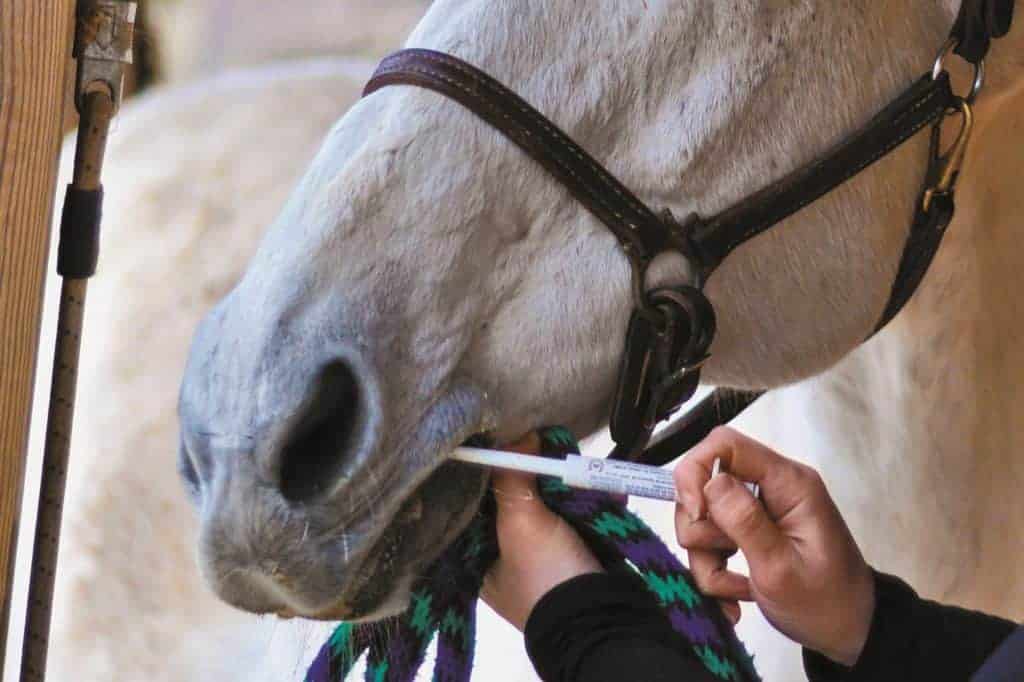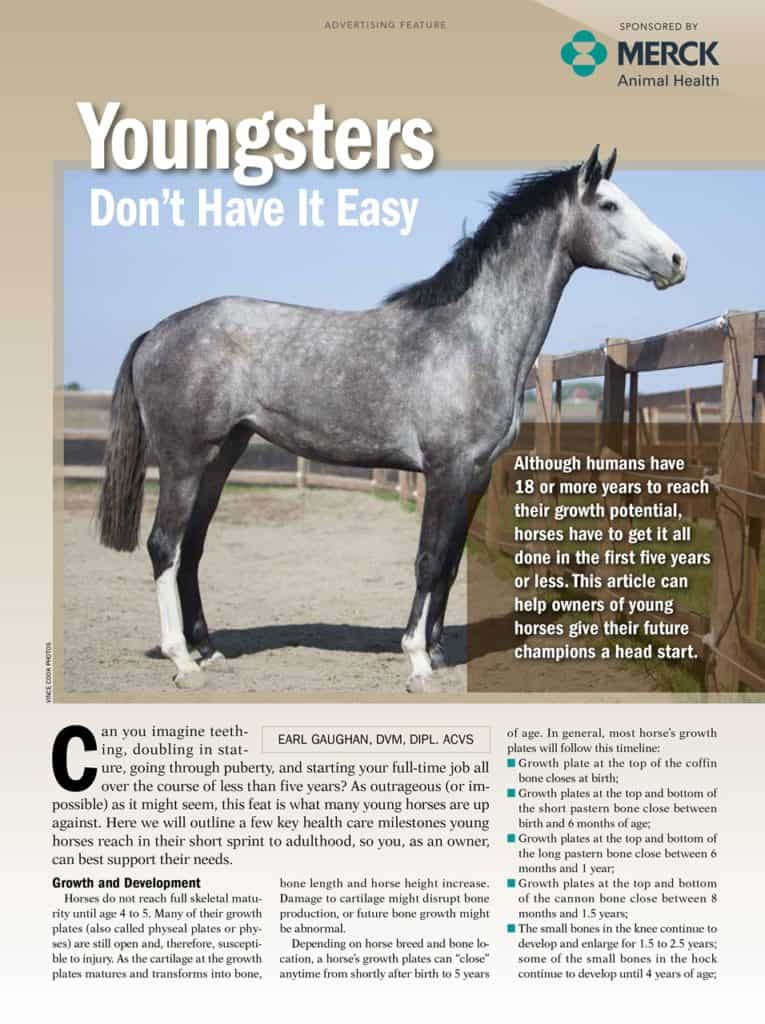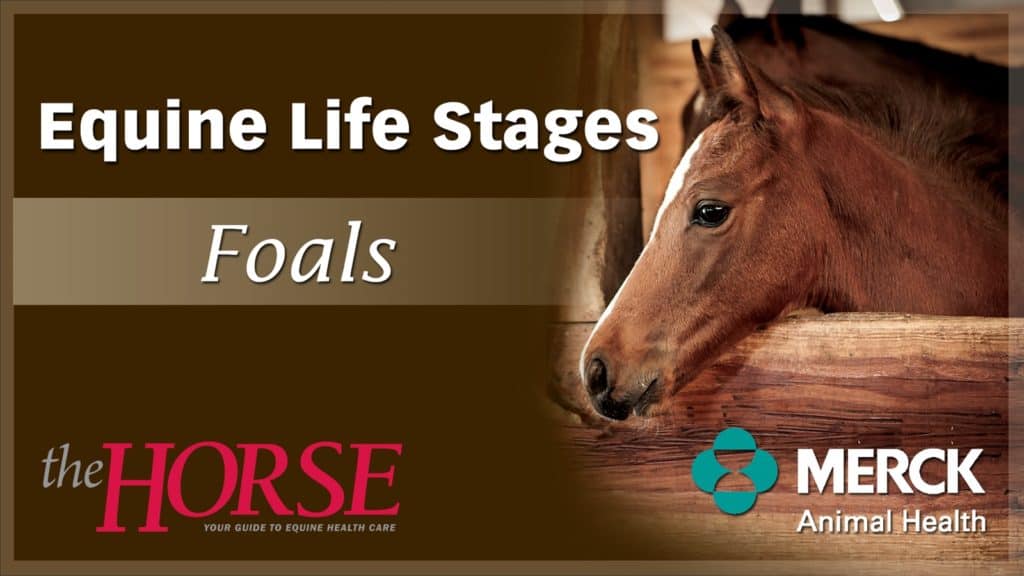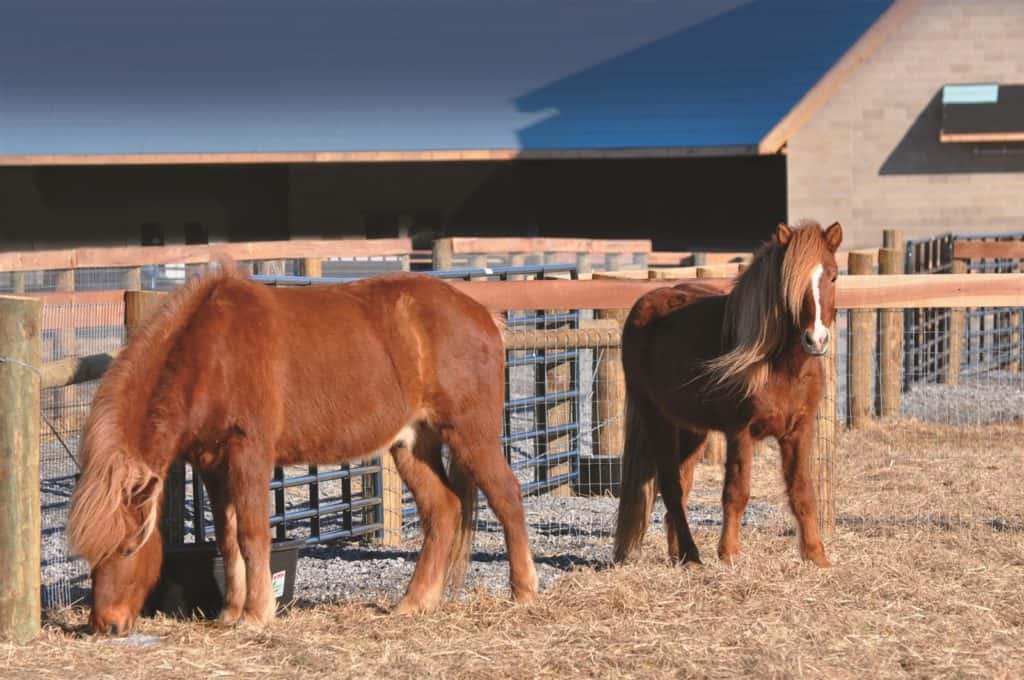
Moxidectin Effective at Reducing Small Strongyle Egg Counts
Moxidectin was 99.9% effective, while fenbendazole was only 41.9% effective 14 days post-treatment.

Moxidectin was 99.9% effective, while fenbendazole was only 41.9% effective 14 days post-treatment.

Here are five ways to help your horse stay healthy and happy through the new year.

Is it worthwhile to deworm my horses during the winter?

A recent survey conducted by researchers at the University of Kentucky found a high percentage of Thoroughbred farm managers used rotational deworming without monitoring drug effectiveness.

An owner seeks advice about deworming her horse that lives alone, travels to a public barn for exercise, and had a fecal sample that did not reveal any parasite eggs.

One owner wants to know the cause of her mare’s tail “frazzle.” This podcast is from the Equine Life Stages: Adult Horses Q&A audio event.

Practicing fecal egg count testing, selective deworming, and other management strategies to help ward off increasing parasite resistance to anthelmintics.

With “parasite portfolio” monitoring, significantly fewer adult horses in one program required treatment for intestinal parasites, one researcher said.
Moxidectin is used to treat and prevent external and internal parasites in the horse and other species.

The 66th Annual Midwestern Conference of Parasitologists took place June 5-7 at the University of Kentucky’s Gluck Equine Research Center.

Deworming guidelines have changed in recent years. Find out what’s best for young horses. This podcast is from the Equine Life Stages: Young Horses Q&A audio event.

A horse’s early years are crucial to his development and future potential. Learn how to get your young horse off to a great start in life during this live event.

Give your youngster a strong start to a lifetime of health with information from this in-depth special report about horses age 1 to 3 years old. Learn about deworming, dental care, bone disease, hoof care, and more.

Should a foal be dewormed during its first 6 months of life? Dr. Wendy Vaala responds. This podcast is from the Equine Life Stages: Foals Q&A audio event.

Consider your property’s equine traffic, geographic location, and parasite control goals to create an effective program.

Last spring my veterinarian requested her clients stop deworming their horses. We now do no deworming and have her perform two fecal egg counts per year–one in the spring and one in the fall. Is this program of not deworming okay for my horses?
Stay on top of the most recent Horse Health news with
"*" indicates required fields